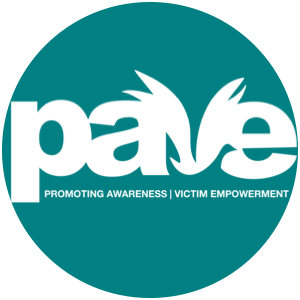Violence Against Indigenous Women and the Extractive Industry
Tiny House Warriors protesting the Trans Mountain Pipeline Man Camps in Canada. Photo from: Tiny House Warriors
Environmentalism and gender-based violence are two seemingly very separate issues plaguing our world today. However, they are connected in a very widespread, but often silenced issue. I am talking about Missing and Murdered Indigenous Women (MMIW) and their correlation to the extractive oil industry.
We often hear about the benefits of American energy independence, but this independence poses a large threat to the Indigenous women and children. They’re called “Man Camps.” Man Camps are temporary housing facilities provided for predominantly male extractive oil workers. The Camps can vary from RVs or trailers to lodges or portable barracks. Man Camps are often built on or near Indigenous territories and far away from cities, leaving workers with little to do after the work day.
The Target Logistics Man Camp in Williston, N.D. located near Turtle Mountain Reservation.
Photo Credit: Nicole Bengiveno/The New York Times
When new projects and pipelines are built, the Man Camps cause a large influx of Non-Indigenous male workers entering Indigenous communities. In some cases, these camps can more than double the local community in which the local tribe has no legal control over. With such a large influx of working men, there is also a sharp rise in both physical and sexual violence against Indigenous women.
Take for example the Bakken oil region of Montana and North Dakota. Since the Bakken oil boom, Indigenous communities have faced higher rates of human trafficking, sex trafficking and MMIW. In 2019, the Department of Justice completed a study that showed a 70% increase in violent crimes and a 30% increase in rape and sexual assault between 2006-2012 in the Bakken region. Even more telling, these same crimes decreased in communities outside of the Bakken region.
An article written by the University of Colorado Boulder notes that “the potential for harm from the man camps is exacerbated when the locations of extractive projects are on or near Native communities, where already higher rates of violence against women and lower access to justice create a system ripe for the exploitation of Native women and children.
A report by the National Institute of Justice found that Native women are murdered at rates more than 10 times the national average. Moreover 96% of the Indigenous female survivors experienced violence from a non-Indigenous perpetrator. These crimes are largely unreported. Out of 105 cases of MMIW, 62% were unreported, 74% have no public documentation, and 56% don’t mention the victim’s tribal affiliation.
The correlation between the extractive oil industry and gender-based violence towards Indigenous women is clear. However, how can environmentalism help put an end to this issue? The Bakken Oil Region, along with all other regions with Man Camps, are inherently tied to the extractive industry. By focusing on non-renewable energy, Man Camps will continue to exist and pose a threat to Indigenous communities.
Advocating for clean, renewable energy sources in turn advocates for the wellbeing of Indigenous women. By using solar, wind, geothermal and hydroelectric energy over gas, coal and oil, we are voting to support a community in danger. Indigenous peoples have suffered in the interests of the Non-Indigenous for centuries and the extractive oil industry is only continuing this pattern of destruction.
About the Author
Hi, I’m Bella Mutert, a social media and marketing intern at PAVE. I am a senior at DePaul University studying Communications, Media, PR & Advertising. As a survivor myself, I am thrilled to be interning at PAVE and making a difference in other survivors’ lives. I am passionate about sharing holistic healing tools with survivors and raising awareness about the intersection of sexual violence and mental health issues/ substance use disorder. Thanks for reading!



